Senate Poised This Week to Pass Uniform Labeling Standard for Biotech Foods
July 06, 2016 Efforts to adopt a national framework for the labeling of foods made with biotechnology are nearing successful completion on Capitol Hill, now that Senate leaders have agreed on a compromise approach to achieve that goal. The Senate is expected to take a preliminary cloture vote on the measure on Wednesday afternoon which, if successful, will be followed by a vote on final passage on Friday.
Efforts to adopt a national framework for the labeling of foods made with biotechnology are nearing successful completion on Capitol Hill, now that Senate leaders have agreed on a compromise approach to achieve that goal. The Senate is expected to take a preliminary cloture vote on the measure on Wednesday afternoon which, if successful, will be followed by a vote on final passage on Friday.
NMPF is urging its members to contact their Senators in support of the measure, using the Dairy GREAT online email tool. Once the Senate acts, the measure also will have to be approved by the House of Representatives before being signed by President Obama. The window of opportunity to complete the process is narrow, as Congress is slated to recess on July 15 until after Labor Day, which is why NMPF is coordinating a strong grassroots campaign to spur action this week.
After months of negotiation, Sens. Pat Roberts (R-KS) and Debbie Stabenow (D-MI) of the Senate Agriculture Committee reached an agreement in late June on legislation that would create a national, mandatory system to disclose the use of biotech ingredients. The Senate measure would preempt state laws, such as the one in Vermont, which takes effect this month. The Robert-Stabenow agreement received strong support in a procedural vote last Thursday, and is expected to move toward final adoption later this week.
The agreement requires that products or ingredients made with biotechnology disclose this information through three possible methods: through text or a symbol directly on the packaging, using a QR code, or a link to a website where consumers can go for more information.
“We need this sound and workable approach to reaffirm the federal government’s role in food labeling policy and prevent the chaotic mess that would arise from leaving this issue to the whims of 50 different states,” said NMPF President and CEO Jim Mulhern.
Throughout the Senate negotiations, NMPF argued strongly that milk and meat from animals that consume feed grown from biotech seeds are not subject to the labeling disclosure provisions.
“This is an important, common-sense provision,” Mulhern said. “Milk and meat are not genetically modified by the cows consuming biotech feed, just as humans are not genetically modified by consuming foods derived from biotechnology.”
Earlier last month, at the organization’s summer board meeting, the NMPF Board of Directors adopted a resolution calling on Congress to act quickly to provide consumers across the country clear and consistent information on food biotechnology.
NMPF Board Members, Young Cooperators Blitz Capitol Hill on Food Biotechnology
July 06, 2016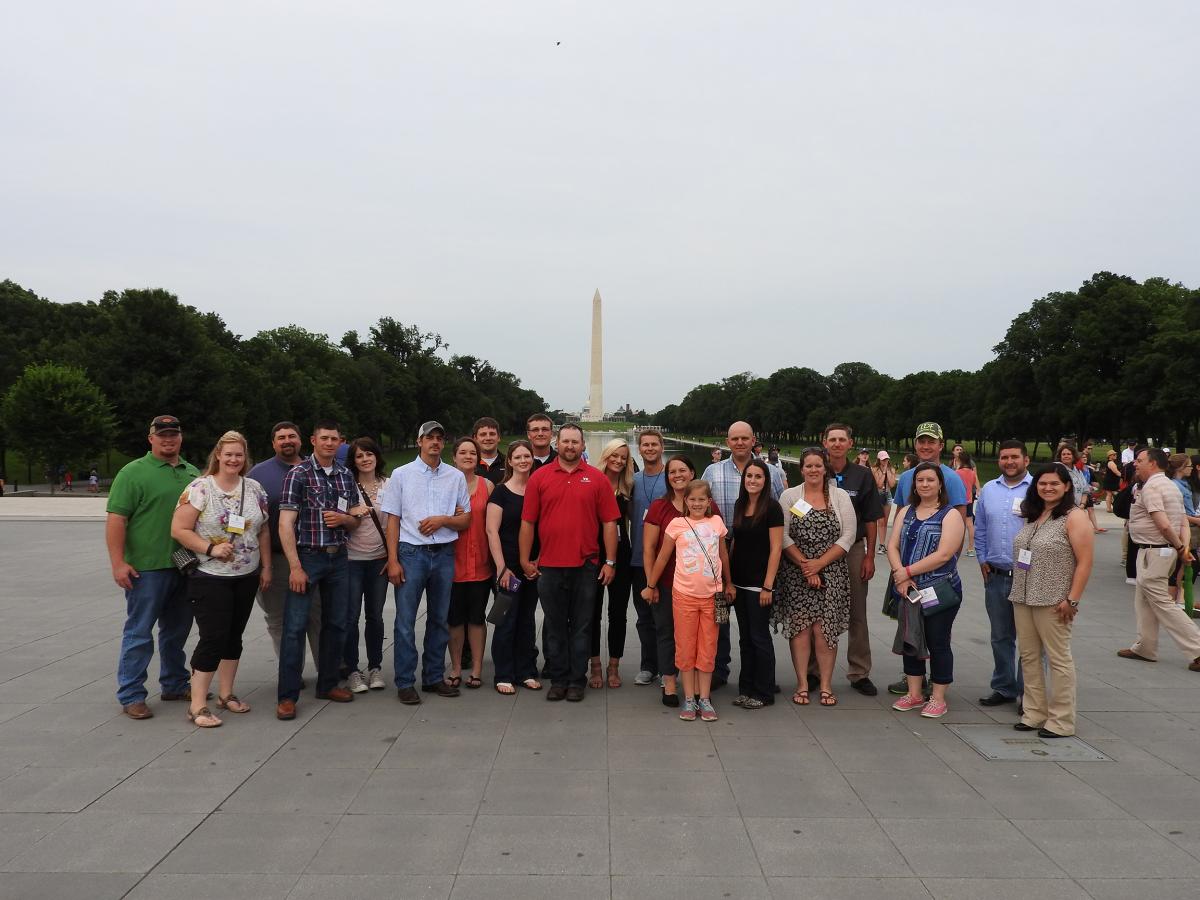 Nearly 60 young farmers joined a large contingent of NMPF board members who descended upon Capitol Hill in early June to advocate for a sensible solution to the dispute over the proper labeling of foods produced using biotechnology. The Capitol Hill blitz demonstrated a groundswell of grassroots support that helped lead to the now imminent congressional action on the measure.
Nearly 60 young farmers joined a large contingent of NMPF board members who descended upon Capitol Hill in early June to advocate for a sensible solution to the dispute over the proper labeling of foods produced using biotechnology. The Capitol Hill blitz demonstrated a groundswell of grassroots support that helped lead to the now imminent congressional action on the measure.
The activity on Capitol Hill was one highlight of last month’s summer NMPF Board meeting, which coincided with the then-stalemated negotiations between key senators on the food biotech disclosure measure.
Just as they do each June, the national Young Cooperator (YC) program brought farmers from all over the country to discuss key issues of concern with their elected officials, which also included trade agreements and biogas tax legislation (see separate stories on developments on those issues). NMPF board members joined the YCs on these visits to further press their representatives on supporting a common-sense biotech disclosure agreement.
On June 7th, the YCs joined the board and NMPF staff in celebrating the organization’s centennial with a rooftop dinner overlooking the Capitol building. Sens. Pat Roberts and Debbie Stabenow, and Rep. Collin Peterson attended the dinner, making remarks encouraging NMPF’s members to speak out on behalf of the dairy industry.
“During our 100th anniversary commemoration last month, NMPF again confirmed the effectiveness of its member engagement on national policy issues,” said Jim Mulhern, President and CEO. “As we have seen many times, farmers can have a noticeable impact here in Washington when they speak with one voice. Our members demonstrated that once again during our meeting in June.”
NMPF Chairman Touts Benefits of Trade at Congressional Hearing, But Calls for Strict Enforcement of Agreements
July 06, 2016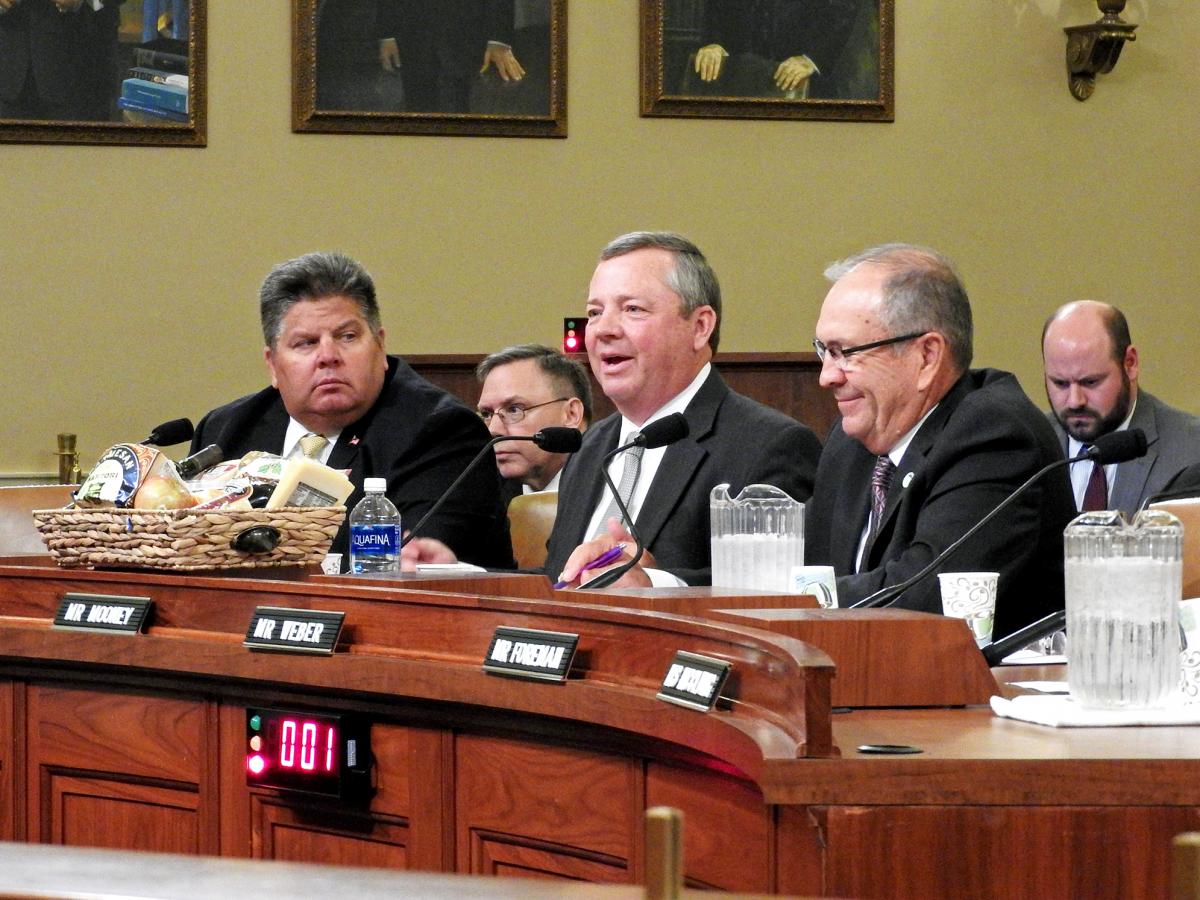 NMPF Chairman Randy Mooney told a congressional panel last month that free trade agreements have the potential to benefit America’s dairy farmers, but current – as well as future – trade deals must be carefully enforced.
NMPF Chairman Randy Mooney told a congressional panel last month that free trade agreements have the potential to benefit America’s dairy farmers, but current – as well as future – trade deals must be carefully enforced.
Mooney told the House Ways and Means Trade Subcommittee on June 14 that U.S. dairy sales in foreign markets have risen dramatically in the 21st century, increasing 435% since 2000. He said well-negotiated agreements have paved the way for this increase, citing the World Trade Organization’s GATT agreement, NAFTA, CAFTA, and the agreement with South Korea as examples of trade deals that have benefited America’s dairy farmers. [Mooney’s full testimony can be found here].
However, the benefits of trade agreements can erode if they are not carefully structured and then continuously and judiciously enforced, he said. One recent example of such a situation is in Canada, where efforts to restrict market access for American milk products are growing, in anticipation of the enactment of the Trans-Pacific Partnership agreement.
“NMPF supports TPP. We believe this agreement could deliver important benefits to U.S. dairy farmers provided that it’s properly implemented and enforced.” But if TPP partners are allowed to erode existing access in order to undermine future U.S. export gains, “it is hard to see how this agreement will live up to its potential to move us forward,” Mooney said. This is particularly a concern with Canada, he indicated.
“We are drawing the line here. This recent action by Canada is a clear violation of their prior trade commitments, as well as the spirit of Trans-Pacific Partnership, and it cannot be permitted,” said Mooney, referring to a decision by Ontario’s provincial government to favor domestic milk proteins designed for use in Canadian cheese manufacturing in a way that disadvantages U.S. milk exports. The regional Ontario milk pricing policy may soon also be implemented across Canada.
Mooney pointed to a basket of U.S.-made farm products to drive home the message that a growing concern in trade policy is the push by European governments to restrict the use of common food names in a way that will hamper exports of certain foods, including many varieties of cheese made in America and sold internationally.
Rather than serving as a means to remove trade barriers and increase free trade of agricultural products, he said that the European Union “not only is maintaining their existing barriers, but also is actively pushing in the Transatlantic Trade and Investment Partnership to impose new barriers through geographical indications provisions. The TTIP cannot be an agreement that expands EU dairy exports while failing to resolve barriers to U.S. dairy exports.”
Given that European food companies already enjoy a major export advantage to the U.S., “America’s dairy farmers will not support a TTIP agreement that incorporates policies aimed at artificially increasing the $1.5 billion transatlantic dairy trade deficit. A solid deal must level the playing field for U.S. dairy exports.”
NMPF also reiterated this point in a letter [LINK] to U.S. Trade Representative Michael Froman and Agriculture Secretary Tom Vilsack, dated June 22. NMPF joined 36 other agriculture groups in calling on Froman and Vilsack to ensure the TTIP agreement is comprehensive and meets the needs of the food and agriculture industries.
“Anything less will fail to gain the necessary support for ratification while making it all the more difficult to achieve the resolution of the various issues plaguing our industries,” the letter said.
NMPF Urges President Obama to Focus On Dairy Trade Issues During Visit with Canadian Leader
July 06, 2016 As President Barack Obama met with his counterparts from Canada and Mexico last week in Ottawa, NMPF joined the U.S. Dairy Export Council in issuing a joint statement calling on the United States to ensure that Canada “plays by the rules” when it comes to dairy trade.
As President Barack Obama met with his counterparts from Canada and Mexico last week in Ottawa, NMPF joined the U.S. Dairy Export Council in issuing a joint statement calling on the United States to ensure that Canada “plays by the rules” when it comes to dairy trade.
NMPF cited the “continual erection of nontariff trade barriers” by Canada, including the recent milk pricing policy change designed to discourage Canadian processors from using imported dairy products. In light of this disingenuous use of policies and regulations to block trade, NMPF stressed the importance of ensuring that the nation’s existing trade obligations, as well as its new commitments in the Trans-Pacific Partnership agreement, work in practice as intended on paper.
This was also the message delivered by NMPF staff on a trip to Canada last month. During that visit, NMPF’s Senior Vice President for Strategic Initiatives & Trade Policy, Jaime Castaneda, met with the U.S. Ambassador to Canada, Bruce Heyman, as well as representatives from the USDA’s Foreign Agriculture Service and the State Department. In addition, there were also meetings with high-level officials at the Canadian Ministry of Agriculture and the Canadian Dairy Commission. Throughout these discussions, NMPF expressed strong concerns with Canada's trade-restricting actions and clearly communicated that the United States is resolute about its rights to defend U.S. market access avenues.
NMPF Endorses Biogas and Nutrient Recovery Tax Incentive Legislation
July 06, 2016New legislation was introduced in the U.S. House of Representatives in mid-June that would create tax incentive investments in biogas and nutrient recovery. NMPF worked with the bill’s sponsors to enhance the value of the legislation, titled the Agriculture Environmental Stewardship Act, to dairy farmers.
The new measure, introduced by Reps. Ron Kind (D-WI) and Tom Reed (R-NY), will help dairy farmers increase their investment in technologies, such as manure digesters, that help recover and recycle nutrients from animal waste.
“This measure recognizes the value that biogas systems can have as dairy producers continue improving the sustainability of their farms, large and small, across the country,” said Jim Mulhern, president and CEO of NMPF. “It will benefit society by decreasing nutrient runoff in waterways, decreasing farm odors, and improving water quality.
Mulhern said the creation of this new investment tax credit “also addresses the value of nutrient recovery technologies, which can transform manure into fertilizer for crops and bedding for cows.”
The Agriculture Environmental Stewardship Act is also sponsored by the bipartisan co-chairs of the Congressional Dairy Farmer Caucus. NMPF sent a letter thanking the sponsors for their efforts to move this legislation through Congress. A similar bill is expected to be introduced this year in the Senate.
CWT-assisted member export sales contracts hit 7.4 million pounds in June
July 06, 2016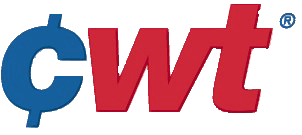 Cooperatives Working Together member cooperatives captured 17 contracts to sell 4.868 million pounds of American-type cheese, 458,562 of butter and 2.119 million pounds of whole milk powder in June. These products will go to customers in Asia, Central America, the Middle East, North Africa, Oceania and South America. The product will be shipped from June through December 2016.
Cooperatives Working Together member cooperatives captured 17 contracts to sell 4.868 million pounds of American-type cheese, 458,562 of butter and 2.119 million pounds of whole milk powder in June. These products will go to customers in Asia, Central America, the Middle East, North Africa, Oceania and South America. The product will be shipped from June through December 2016.
For the first six months of 2016, CWT assisted members in winning export sales contracts totaling 28.098 million pounds of American-type cheese, 5.351 million pounds of butter (82% milkfat) and 20.406 million pounds of whole milk powder going to customers in 20 countries on five continents. The sales are the equivalent of 528.696 million pounds of milk on a milkfat basis. Totals are adjusted to reflect cancellations.
Assisting CWT member cooperatives gain and maintain world market share through the Export Assistance program expands the long-term demand for U.S. dairy products and the U.S. farm milk that produces them. This, in turn, positively impacts all U.S. dairy farmers by strengthening and maintaining the value of dairy products that directly impact their milk price.
The amounts of dairy products and related milk volumes reflect current contracts for delivery, not completed export volumes. CWT will pay export assistance to the bidders only when export and delivery of the product is verified by the submission of the required documentation.
All cooperatives and dairy farmers are encouraged to add their support to this important program. Membership forms are available on the CWT website.
MPP Forecast: July
July 06, 2016
Early July futures for feed and milk prices are pointing toward stronger margins for the remainder of 2016, and into 2017. A rebound in cheese prices, and the continued strength of butter, are boosting expectations for milk prices in the last half of this year, while improved crop growing conditions are keeping a lid on feed costs.
Dairy farmers have from now until Sept. 30 to enroll in the Margin Protection Program for coverage in 2017, or to change their coverage level if they are already participating in MPP. NMPF’s Future for Dairy website offers a variety of educational resources to help farmers select the desired coverage level.
NMPF Recommends Next Steps to Government on Animal Antibiotic Data Collection
July 06, 2016As the federal government continues its focus on the health impacts of antibiotics use in people and animals, NMPF has provided the Presidential Advisory Council on Combatting Antibiotic-Resistant Bacteria with input on how drugs are used on dairy farms, and how the government should consider updating its data collection process.
Current data collection efforts on farm animal antimicrobial use are fragmented and ad hoc, “resulting in information that has not been scientifically beneficial,” NMPF wrote June 22 to the Department of Health and Human Services, which is the lead federal agency on this issue.
NMPF cautioned that a mere comparison of sales data to animal and human markets is not helpful, and that such comparisons create the impression that sales volumes correlate to the risk of spreading antibiotic-resistant bacteria. Rather than comparing the relative sales of antibiotics for animal and human uses, NMPF believes a national data collection program should be:
1. Objective driven. A data collection program should start with a clearly stated scientific purpose which drives the collection method. To date, this clear objective has been lacking in federal data collection efforts.
2. Comprehensive. Data should be collected on all uses, and data from the human, veterinary and other sectors should be collected in a way that makes meaningful comparison possible. Human health care systems are not reporting on a weight based measure, but rather in either days of treatment or defined daily doses. Simple comparisons by kilograms or pounds of antibiotics between animal and humans are inherently misleading due to the larger size of most food animals.
3. Globally comparable. Events continue to demonstrate the global nature of the antibiotic resistance challenge. Other countries have moved away from volume measurements toward animal defined doses. Ensuring the U.S. produces globally comparable data will assist in the necessary global coordination of mitigation efforts.
4. Protective of confidentiality. Public use of farm-level data must be aggregated to protect confidentiality and raw data must be protected from public disclosure.
NMPF expressed support in its comments for a USDA Animal and Plant Health Inspection Service initiative that features a more comprehensive data collection process. National Milk has been part of a coalition of livestock, veterinarian, and allied industry organizations that are urging Congress to allocate funding to USDA for this effort.
NMPF’s comments also outlined the value of the National Dairy Farmers Assuring Responsible Management (FARM) animal care Program’s guidance on the proper use of antibiotics as part of an overall herd health plan, along with the importance of the FARM program’s Milk and Dairy Beef Drug Residue Prevention Manual.
The CARB process is a multi-year effort across the federal government to address several related priorities, including on-farm antibiotic use data collection and increased antimicrobial stewardship in food and companion animals.
Save the Date: Joint Annual Meeting to take place October 31-November 2 in Nashville
July 06, 2016
In less than four months, NMPF will join the National Dairy Board and United Dairy Industry Association to host its joint annual meeting – where those active in the dairy industry get together and share in their common accomplishments and challenges, as well as discuss the best paths to follow for the industry's future.
This year, the event will take place in Nashville, Tenn., from October 31-November 2. Online registration for the meeting will be available later this month.
Already, several prominent speakers are confirmed for the event. Stuart Rothenberg, a leading political analyst, will share his humorous and captivating thoughts about the likely outcome of this year’s historic presidential election, and what’s at stake for the dairy industry. Nina Teicholz is an investigative journalist and author of the New York Times bestseller “The Big Fat Surprise: Why Butter, Meat & Cheese Belong in a Healthy Diet.” She will discuss how her research and book has upended the conventional wisdom on dietary fat and challenged the very core of nutrition policy.
National Dairy FARM Program to Host Inaugural Evaluator’s Conference
July 06, 2016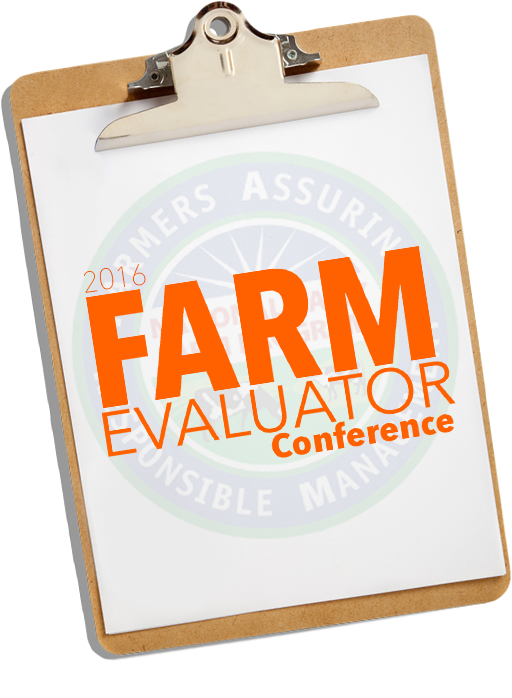 The National Dairy FARM Program is hosting its first-ever, two-day evaluator’s conference from November 2-3, 2016, in Nashville, Tenn., following the conclusion of the joint annual meeting. The event will provide ample professional development opportunities for all FARM Program evaluators to network, hear from engaging speakers and interact with each other. Conference sessions will include discussions on the latest animal well-being research, crisis management and communications training, as well as round table discussions about FARM Program challenges and opportunities.
The National Dairy FARM Program is hosting its first-ever, two-day evaluator’s conference from November 2-3, 2016, in Nashville, Tenn., following the conclusion of the joint annual meeting. The event will provide ample professional development opportunities for all FARM Program evaluators to network, hear from engaging speakers and interact with each other. Conference sessions will include discussions on the latest animal well-being research, crisis management and communications training, as well as round table discussions about FARM Program challenges and opportunities.
Additionally, attendees will have the opportunity to participate in an optional stockmanship training hosted in partnership with the National Cattlemen’s Beef Association’s (NCBA) Beef Quality Assurance Program. This session teaches handling methods to improve gathering, sorting, chute work, parlor movement and transportation of dairy cattle. Attendees will learn how to reduce handling stress and discuss how producers can have a significant economic – as well as quality-of-life – advantage when applied on the farm. Click here for more information on the conference.
New FARM Resources Now Available
July 06, 2016
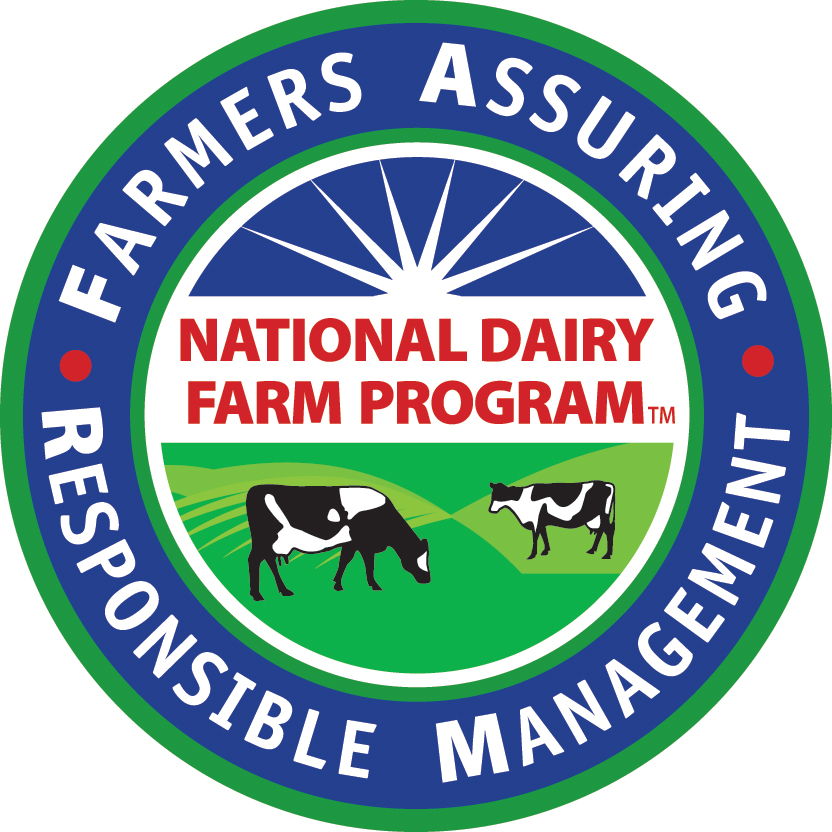 The National Dairy FARM Program continues to release new materials to help cooperatives and farmers prepare for the FARM Program Version 3.0 which will begin to be evaluated on in 2017. Among these resources are documents on tail docking and antibiotic use.
The National Dairy FARM Program continues to release new materials to help cooperatives and farmers prepare for the FARM Program Version 3.0 which will begin to be evaluated on in 2017. Among these resources are documents on tail docking and antibiotic use.
The “Making the Switch” tail docking guide is a resource for producers who are transitioning away from tail docking. The document includes facility management, milking parlor accommodations and employee safety recommendations and tips. Graphics are included to further outline how slight adaptations can be made to ease in the transition process.
Also now available is a one-page document on antibiotic use in dairy cattle. It includes the classification of antibiotics, as well as a description of the uses in dairy cattle. Both of these documents are available on the FARM Program website.
NMPF Sponsors CCFN seminar
July 06, 2016 NMPF sponsored the Consortium for Common Food Names seminar on protecting the right of food companies to continue using their products’ names, held June 21 in Chicago, Ill. The meeting sharped the focus across the food industry of the threats posed by European efforts to restrict the use of food names important to U.S. food producers.
NMPF sponsored the Consortium for Common Food Names seminar on protecting the right of food companies to continue using their products’ names, held June 21 in Chicago, Ill. The meeting sharped the focus across the food industry of the threats posed by European efforts to restrict the use of food names important to U.S. food producers.
The Consortium is an international alliance, founded by NMPF and the U.S. Dairy Export Council, dedicated to preserving marketers’ rights to the use of generic food names. The organization’s role has become more crucial lately, as negotiations continue over the Trans-Atlantic Trade and Investment Partnership (TTIP) between the U.S. and the European Union. The U.S. dairy industry is deeply concerned with the EU’s desire to extend the application of geographical indications to restrict certain food names exclusively for products made in European nations.
More than 70 food company representatives, intellectual property attorneys and others attended the day-long seminar, where speakers and panelists discussed ways to protect the threatened names, including seeking guidance from CCFN. The event also included sessions with officials in the Department of Commerce's U.S. Patent and Trademark Office (USPTO).
The Consortium advised U.S. food and beverage companies on how to preserve the use of common meat, cheese, and wine terms long considered generic in the United States. The visiting USPTO officials raised awareness of the problem of overprotection of geographical indications in U.S. export markets and how this protection might impact the use of common food names.






